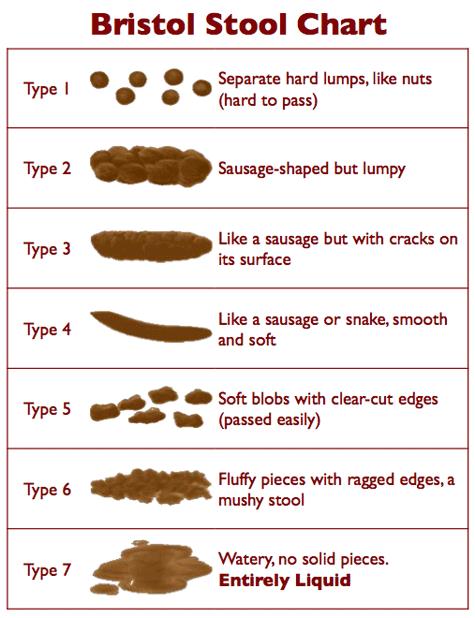There are a few taboo subjects when it comes to polite conversations with your fellow adults.
From political opinions to sex, the size of your wallet to religious convictions, you just don’t talk about certain things with certain people in certain situations.
One of those taboos, of course, is your bowel movements.
So when you go see a naturopathic doctor in Toronto and they ask you about your poo, you might get a little uncomfortable.
And it’s understandable – after all, it’s a taboo subject.
But there are some important reasons why your doctor wants to know about these things.
What Your Poo Can Tell You
In 1987, Soviet leader Mikhael Gorbachev visited president Ronald Reagan in the White House to sign the Intermediate-Range Nuclear Forces Treaty, a historic treaty where the two nations mutually agreed to reduce the size of their nuclear stockpiles.
Naturally, the CIA took this opportunity to spy on Gorbachev as much as possible.
How did they do this?
Cameras, microphones, and men in trench coats and binoculars, I’m sure.
But it’s rumoured they actually collected his poo using a special trap in the White House’s sewage system for analysis.
Whether this actually happened or is just an urban legend, nobody knows for sure.
But if they had, what could the CIA have learned about Gorbachev?
And more importantly, what can your doctor find out about you from your poo?
The Bristol Stool Scale
The Bristol Stool Scale is a tool used in both clinical and experimental fields.
Essentially, it’s a way of classifying your poo.
Where your poo falls in the chart can reveal a lot about your level of health.
The chart is below.
You’ve likely experienced each of these types of poo at some point in your life.
And each of them indicates what’s going on in your body.
What Does My Poo Mean?
Next time you’re sitting on the toilet, take a look before you flush.
You probably bring your smartphone into the washroom with you when you go, so come back to this page and bring up the chart above.
Then compare what you see with the chart.
If You Have Type 1 Poo
If #1 is your product, your poo has been sitting in your intestines for too long.
As a result, your body sucked all the water out of it.
This is hard on your body, and can be painful to pass since the little lumps are hard and scratchy.
You might end up with some bleeding as a result.
You might experience this after taking some antibiotics.
If so, be sure to stock up on probiotics as well.
Antibiotics are like a nuclear bomb for your body; they kill the bad bacteria, but they take out the good bacteria too.
So, you need to replace it with the good stuff.
Fermented foods like kombucha, sauerkraut, or kimchi can help with this, as can a probiotic supplement that contains acidophilus bacteria, for example.
If you haven’t taken any antibiotics lately, Type 1 poo can be a sign that you’re low on fibre.
Include some apples, pears, broccoli, Brussels sprouts, spinach, quinoa, legumes, or beans in your diet to help with this.
If You Have Type 2 Poo
If your #2 is, ahem, #2, you may have had to strain to get it out.
Type 2 poo is similar to Type 1, but the main difference is the fact that it comes out in one big piece rather than little ones.
Type 2 poo can be the most harmful to you, since it’s often bigger than your anal canal should open.
This can cause tearing, bleeding, and other painful issues.
In order for your poo to become Type 2, it has to be sitting inside of you for up to several weeks!
That’s not good.
Type 2 poo is a strong sign of Irritable Bowel Syndrome (IBS).
Speak to a naturopathic doctor or other primary health care practitioner to find out how to take care of this issue.
If You Have Type 3 Poo
Type 3 poo is similar to Type 2, but it doesn’t sit for as long as Type 3.
As a result, Type 3 poo isn’t usually as painful as Type 2, but it’s still an indicator of IBS, or of latent constipation.
And you probably still have to strain to pass it.
The solution for Type 3 poo is similar to Type 2 poo: speak to your naturopathic doctor.
If You Have Type 4 or 5 Poo
If your poo is Type 4 or 5, you’re in better shape, generally speaking.
If you have Type 4 poo, you’re probably going once a day or so.
And if you have Type 5, you’re probably going two or three times a day.
The difference between the two depends on your diet, but in either case you’re in good poo condition.
If You Have Type 6 Poo
Type 6 poo is the type of poo which can show up when you least expect it.
Most poo knocks on the door, patiently waiting for its time to be allowed through the gate.
But not Type 6 poo.
Type 6 poo can indicate a few different issues, including some thyroid issues like hyperthyroidism.
You might have a hyperactive colon, or too much potassium in your diet.
You may also be experiencing a great deal of stress, which can cause your body to release a large amount of potassium into your bloodstream.
You might also be eating too much spicy food.
So, if you find some Type 6, think about what you’ve been eating lately, or how stressed you are.
If You Have Type 7 Poo
If you thought Type 6 was impatient, Type 7 is the rudest of all poo by far.
It’s even more difficult to control, owing to its watery nature.
Type 7 poo is better known as diarrhea.
If you have diarrhea, it can indicate a wide range of different health problems including, believe it or not, constipation (which may be part of an IBS situation).
If you’re experiencing diarrhea for more than one day, speak with your doctor.
A Time For Poo
If your digestive system is working the way it should, your food should be turned into poo in about 24 hours.
But for most people, the average is about 72 hours.
To find out how quickly your body processes food, try the beet test.
Eat a large serving of beets (at least two big ones), and note the time and day you ate them.
Then, monitor your poo to see when it comes out red.
The red poo will, of course, be what’s left of the beets you ate.
If you don’t see any red in your poo for a few days, it may be an indication your digestive system isn’t working as well as it should.
As for frequency, it differs from person to person based on diet, lifestyle, metabolism, and several other factors.
But a general rule of thumb is that you should experience about as many bowel movements as you have meals during the day.
Your Poo And Your Thyroid
The state of your poo can also be an indicator of the health of your thyroid.
Two of the most common thyroid disorders are hyperthyroidism and hypothyroidism, meaning either an overactive or an underactive thyroid, respectively.
Hyperthyroidism is closely connected with Graves’ disease, which may lead to the development of a goiter on the base of your throat, but doesn’t always manifest itself so obviously.
If you happen to notice an increase in the frequency of your bowel movements, as well as a sensitivity to heat or chronic fatigue, hyperthyroidism or Graves’ disease could be the culprit.
Hypothyroidism, on the other hand, is linked with a decrease in metabolic functions, which can lead to a decrease in the frequency of bowel movements or constipation.
Other signs of hypothyroidism include low moods, brittle hair and nails, difficulty sleeping, chronic fatigue, feeling cold all the time, or changes in menstrual cycles.
What To Do With Your Poo
If you’ve been noticing some irregularities with your bowel movements lately, contact us here at Nardini Naturopathic.
You’ll get a FREE health clarity session with me, Dr. Pat Nardini.
During that session, you’ll get your questions about naturopathic medicine answered, explain your concerns, and find out how naturopathic medicine can help.
Contact Nardini Naturopathic to book your FREE health clarity session today.
If you have questions about naturopathic medicine, or you’d like to take your first step into the world of naturopathy, contact us at Nardini Naturopathic, and let’s book an appointment.
Yours in health,
Dr. Pat Nardini, Naturopathic Doctor
320 Danforth Ave suite 206,
Toronto, ON, M4K 1N8
-https://g.page/NardiniNaturopathicDanforth
Dr. Pat Nardini, ND is a licensed doctor of naturopathic medicine in Toronto, Ontario. He offers science based natural health solutions with a special focus on thyroid conditions.



